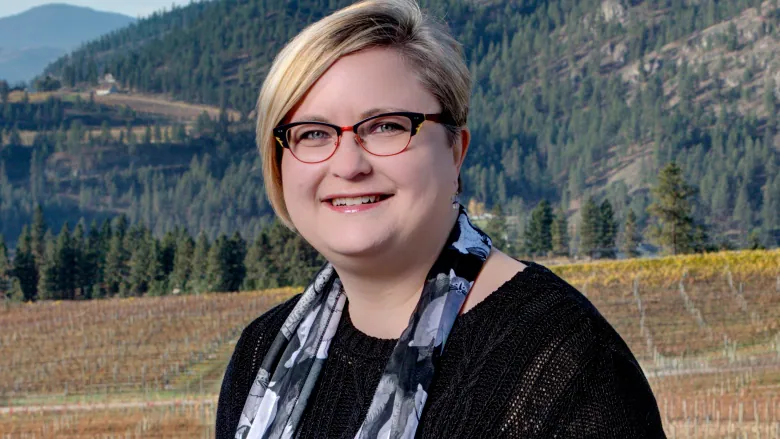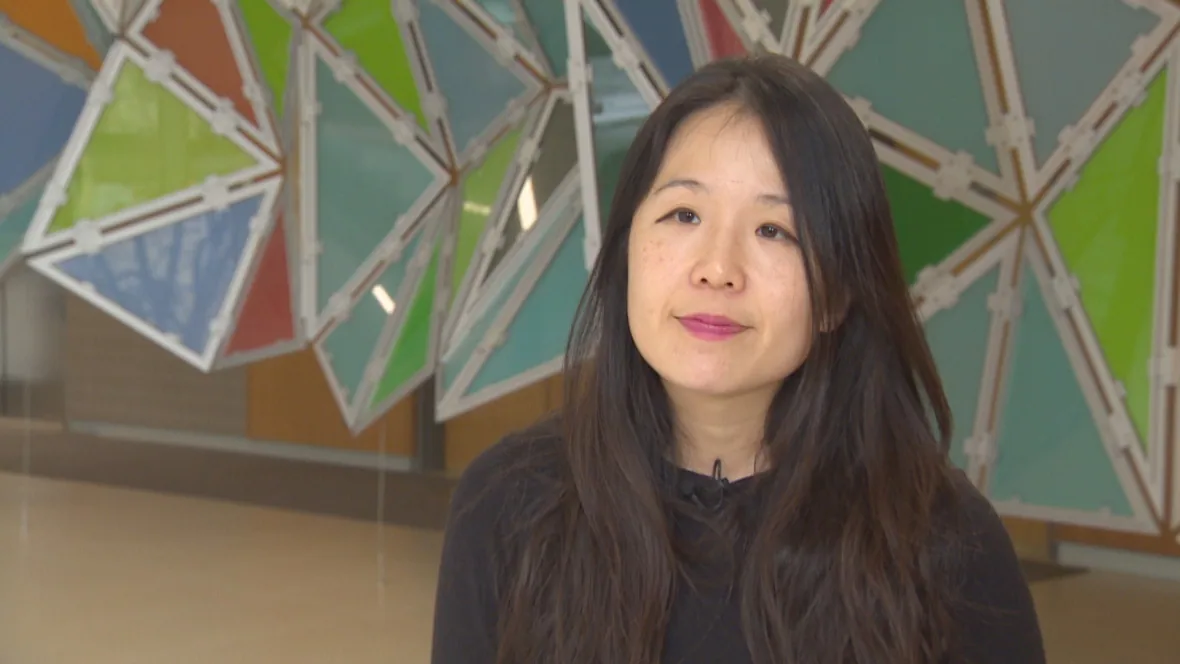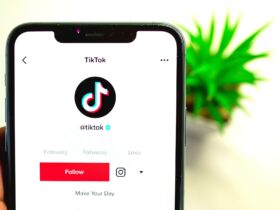Allison Markin, who has lived with multiple sclerosis for two decades, says the discovery that the Epstein-Barr virus plays a part in its onset has provided reassurance.
Markin, who lives in Penticton, British Columbia, said that it might provide an answer to a question she has had for over two decades: Why does she have MS?
“When you are diagnosed with any illness … you wonder, what did I do? Did I do something wrong? Did I eat something wrong? Did I hurt myself?” she told The Current’s, Matt Galloway.
Markin was diagnosed with Multiple Sclerosis (MS) in 2003, a potentially devastating condition in which immune cells attack the protective layer on nerve fibers.
She’s heard a variety of hypotheses about what causes the disease, including one proposed by a naturopath when she was initially diagnosed, that a nerve was injured when she had a wisdom tooth extracted.
However, Harvard University researchers released a large-scale study this week claiming persuasive evidence of a causal relationship between MS and Epstein-Barr virus (EBV).
Although this kind of herpes virus is common in humans, the researchers believe it puts specific individuals at risk of acquiring MS.
She added that if it is a virus, and it wasn’t her fault or anybody else’s, it offers a tiny amount of comfort.
Allison Markin Markin had Epstein-Barr virus for ten years before being diagnosed with MS.
The Harvard researchers examined blood samples obtained between 1993 and 2013 from more than 10 million United States military members.
Recruits who did not exhibit evidence of prior EBV infection were monitored, and a comparison was made between those who got MS and those who did not.
Only one of the 801 MS patients tested negative for earlier EBV infection, and researchers found no indication that other viral infections had a role.
Researchers have long hypothesized a relationship between EBV and MS, but Toronto physician Dr. Jiwon Oh says the Harvard study puts that conjecture to rest.
Oh, medical director of the Barlo Multiple Sclerosis Program at St. Michael’s Hospital in Toronto, stated:
“Because of the size of this study and how long that these people were followed over time, this has given us really strong evidence showing that there likely is a causal link,”
However, EBV infects over 90% of the human population; the infection does not guarantee that a patient will get MS.
According to the MS Society of Canada, over 90,000 Canadians have the condition, or one in every 400 persons.
Oh added that it’s probably a mix of many things, including genetics and perhaps other environmental variables that all come together with having had an Epstein-Barr virus infection.
Disease Similar to a 20 Years ‘Part-time Job’
Markin’s MS impacts her eyesight and causes numbness in her hands.
It also weakens parts of her muscles and impairs her ability to walk.
But since her symptoms change from day to day, she does a “systems check” each morning to determine how much she can accomplish that day.
This entails figuring out what helps me, what makes me feel better, and what may cause inflammation.
She regularly interacts with her medical team to see what medicines are available to control her problems better than the day before.
The results of the Harvard study, according to Oh, are unlikely to have an immediate influence on current therapies for MS, but she does not want people to believe the research will not help in the long term.
According to her, it may be used to garner funding for future research and create an EBV vaccine. Some Epstein-Barr vaccination research is currently underway, including a small trial launched by Moderna.
Oh believes the discovery will shorten the time for vaccine development but warns that effective medicines need time, probably many, many years.
Her goal is that someone experiencing symptoms now, tomorrow, or next year will receive better answers than she did when she was initially diagnosed.












Leave a Reply